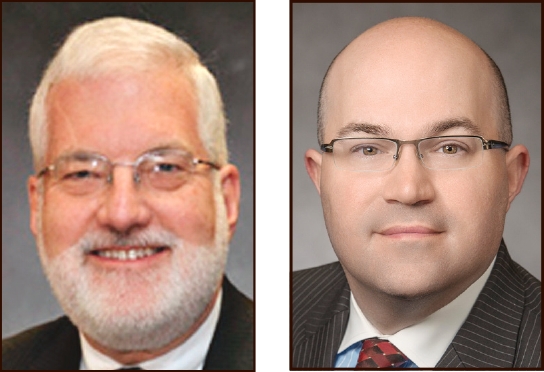Attorney's Column
New Law Creates Confusion in Attempt to Clarify Substantial Completion and Maximum Retainage
By THOMAS H. WELBY, P.E., ESQ. and GREGORY J. SPAUN, ESQ.

In 2002, the New York State Legislature attempted to address the problem of perpetually late payments to contractors and subcontractors in the private sector by enacting the Prompt Payment Act (Sections 756-758 of the General Business Law). Aside from setting forth a schedule by which time payments to contractors and subcontractors need to be made, it provided a mechanism (an “expedited arbitration”) to have undisputed sums paid, and permitted an unpaid contractor who followed the notice requirements of the statute to suspend work— notwithstanding that the applicable construction contract may specifically prohibit such suspension.
In Section 757 of the Act, the legislature also included provisions voiding foreign (another state’s) law and venue clauses as against public policy, and prohibiting parties from attempting to “contract around” the prohibition against suspension of work. However, in an
attempt to balance concerns of owners and upstream contractors, in Section 756-a, the legislature provided that “except as otherwise provided in this article, the terms and conditions of a construction contract shall supersede the provisions of this article and govern the conduct of the parties thereto.” Thus, except for the prohibition against the use of foreign law and the prohibition against contracting around the anti-suspension provision, the Prompt Payment Act was largely toothless, as originally enacted.
In 2009, the legislature attempted to correct this error. However, rather than simply remove the contractual supremacy provision, the legislature added two paragraphs to the void provisions listed in Section 757, one prohibiting the parties from opting out of the expedited arbitration provision, and the other prohibiting any alterations to the payment and notice timeframes set forth in the Act. In 2021, the legislature further amended the Act by enacting a new Section 756-f, which permits an owner or upstream contractor to withhold money pending the receipt of certified payrolls, etc., required to comply with the Construction Industry Wage Theft Prevention Act. This section, however, did not contain a correlating provision in Section 757 excepting it from the contractual supremacy clause.
On Nov. 17, 2023, Gov. Kathy Hochul signed a bill again amending the Prompt Payment Act. These new amendments allow a contractor to submit a final invoice for payment in full upon reaching substantial completion (Section 756-a[2][a]). They also limit the amount of retainage to be withheld by the owner and upstream contractors to no more than 5% of the contract sum (Section 756-c).
Previously, a contractor could submit a final invoice only “upon the performance of all the contractor’s obligations under the contract,” and retainage was limited to “a reasonable amount” mutually agreed to by the parties. Similar to the 2021 amendment, however, there was no correlating modification of Section 757 to remove this provision from the application of the contractual supremacy clause.
In the wake of these amendments taking effect, some practitioners are advising their current and potential clients that “While these amendments present a drastic and detrimental change in law both to owners and general contractors, the Prompt Payment Act has a far-reaching savings clause allowing the parties’ construction contract to supersede these and certain other provisions of the Act,” and that “Contract provisions dealing with the timing of the submission of a final invoice (GBL §756-a[2](a]) and the amount of retainage which can be withheld (GBL §756-c) are not included in the list of Void Provisions under GBL §757 and, in our view, contractual provisions to the contrary will supersede the provisions of the Act.” This was clearly not the legislative intent of the new law, which was to limit retainage held by both the owner (which would benefit general contractors and, therefore, was supported by the Associated General Contractors of New York State, amongst others) and upstream contractors (which would benefit subcontractors and suppliers and, therefore, was supported by the Northeastern Subcontractors Association and the Subcontractors Trade Association of New York City, among others).
This interpretation of the new law would make it completely toothless because the parties would have the right to contract around these provisions. Another interpretation is that since the contractual supremacy provision is found in Section 756-a, it only applies to those provisions in that section (which contains the timing provisions, as well as the new ability to invoice upon substantial completion), but not those found in Sections 756-b through 756-f (which contain, amongst others, the new retainage cap, as well as the ability to withhold payment for failing to provide information necessary to ensure compliance with applicable wage theft statutes).
One thing that is clear from the aftermath of the recent amendment to the Prompt Payment Act is that the legislature missed its mark in providing the clarity it sought to provide. Accordingly, further action from the legislature is required either in the form of adding one or more additional provisions to the list of void clauses found in Section 757—or simply deleting the contractual supremacy clause found in Section 756-a and letting the Prompt Payment Act function as originally intended. Until such real clarification is forthcoming, contractors would be well advised to consult with experienced construction counsel to draft detailed contractual provisions relating to the timing of payment, retainage, and documentation necessary to comply with the wage theft statutes, as well as those which relate to the myriad of other issues facing the industry. Unfortunately, until the legislature clears up this confusion, expect more disputes and litigation over related contract and subcontract interpretations.
About the author: Thomas H. Welby, an attorney and licensed professional engineer, is General Counsel to the Construction Industry Council of Westchester & Hudson Valley, Inc., and the Building Contractors Association, and is the Founder of and Senior Counsel to the law firm of Welby, Brady & Greenblatt, LLP. Gregory J. Spaun, General Counsel to the Queens and Bronx Building Association, and an attorney and a partner with the firm, co-authors this series with Mr. Welby.
